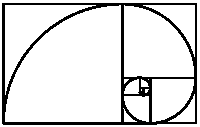Math in the Middle Institute Partnership

Department of Teaching, Learning, and Teacher Education: Master of Arts in Teaching, Summative Projects
Date of this Version
7-2006
Abstract
In this action research study conducted within my sixth grade High Ability Learner (HAL) classroom, I investigated the current mathematics attitudes of my students and how these attitudes correlated to personal mathematics achievement and identified intelligence domains. I discovered that most of my nineteen students held a negative attitude toward the subject of mathematics. Consistent low ratings were also found in the logical/mathematical domain of most of my students’ ALPS Multiple Intelligence Profiles. Regardless of this dominant affective data (indicating little mathematics interest or potential from student perspectives) surprisingly, most of my sixth grade HAL students scored above the 90th percentile on the mathematics portion of their most recent Terra Nova nationalized testing report. As a result of this action research, I clearly see the need for gifted students to be shown important connections between mathematics and its utility outside the context of school academia. By supplementing our school’s gifted education curriculum with activities that actively engage students in mathematical interpretation and creative problem solving, I hope to nurture an intrinsic interest in mathematics as a vital part of my students’ overall development.


Comments
A report on an action research project submitted in partial fulfillment of the requirements for Master of Arts in the Department of Teaching, Learning and Teacher Education, University of Nebraska-Lincoln. Ruth Heaton, Advisor. July 2006.